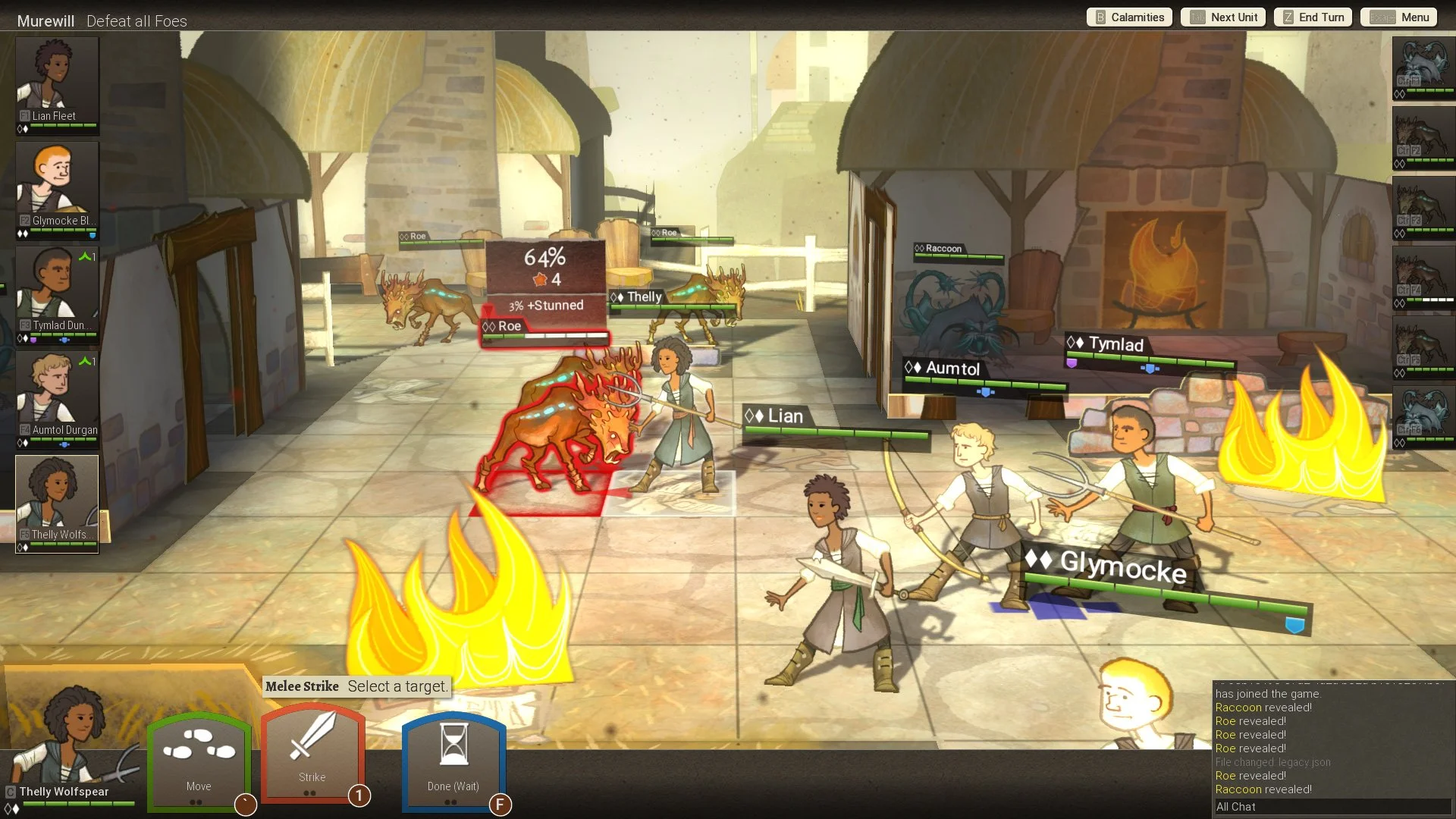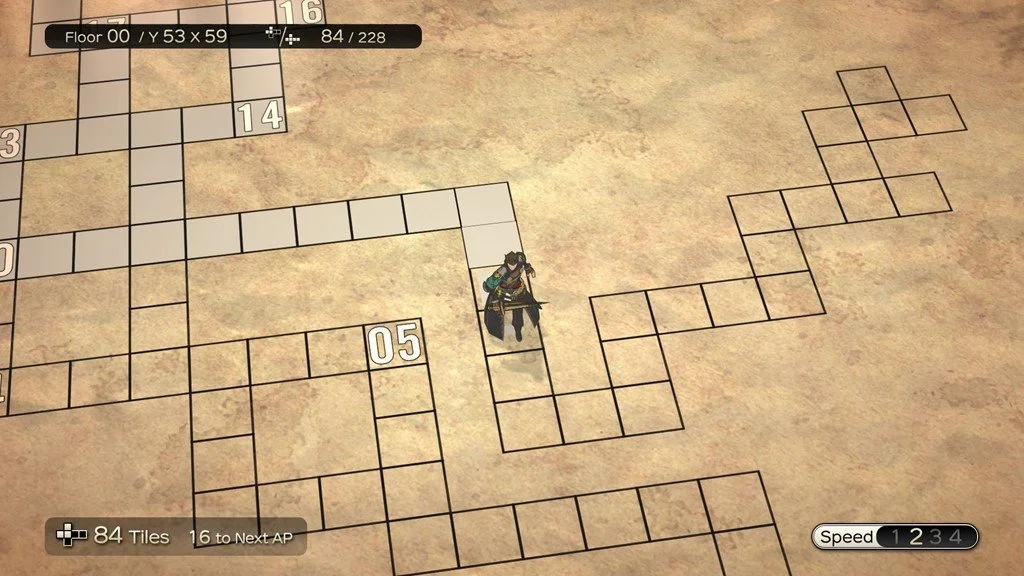Christian Haines's 2021 Games of the Year: All The Small Things
Christian Haines, Managing Editor
2021 made me feel smaller. I won’t bore you with the details, except to say that they involved professional disappointment and a severe contraction of my social life. But 2021 is also the year when I began to appreciate the small things in the games I played, as well as in everyday life. I relished quotidian joys—a sudden hug from my 2 year-old, a cup of bitter coffee, a conversation with a friend. I’ve become more jaded, less hopeful about the future, but I’ve also learned to sink into the pleasures of my immediate surroundings. So, instead of writing up a ranked list of the “best” games of the year, I thought I would offer some games filled with small joys. (For those of you looking for more spectacular, fast-paced actions, don’t worry: I’ll also mention a few AAA games with explosions and extreme sports at the end of this article.)
The list (in no particular order):
· Life is Strange: True Colors (Deck Nine, Played on Series X)
· Sable (Shedworks, Played on Series X, Game Pass)
· The Artful Escape (Beethoven & Dinosaur, Played on Series X, Game Pass)
· Cloud Gardens (Noio Games, Played on Series X)
· Wildermyth (Worldwalker Games, Played on PC & Mac)
· Psychonauts 2 (Double Fine Games, Played on Series X, Game Pass)
· Lake (Gamious, Played on Series X, Game Pass)
· Dungeon Encounters (Square Enix, Played on Switch)
· Cruis’n Blast (Raw Thrills, Played on Switch)
The Life is Strange series continues to use supernatural game mechanics to emphasize the importance of our daily lives. True Colors is no exception. The protagonist, Alex Chen, moves to a small town in Colorado, meeting up with her brother and his friends. Although what follows could be described as a murder mystery, even a thriller, it’s the small moments that really stand out in the game: Alex covering Radiohead’s “Creep” on an acoustic guitar; a LARP that features JRPG-style turn-based combat; taking orders as a server at the local bar. Erika Moi lends her voice and her facial expressions to Alex, and the result is a game in which even subtle emotions come across with wonderful intensity.
The problem with most open-world adventures is that they destroy their own openness with map markers and repetitive quests, most of which boil down to combat opportunities. Sable – a game made mostly by two developers – is the smallest and the most open open-world game I’ve ever played. Its setting is science fiction, with explicit echoes of Star Wars: The Force Awakens. (The developers in an interview with Wired: “Like, the beginning [of The Force Awakens] where Rey is being raised on Jakku. What if she never left? What would that be like?”) It tells a coming-of-age story, in which you set out to explore the world and choose a profession. Choosing a profession means performing certain tasks, ranging from collecting eggs from a giant sandworm to climbing cliffs to reach a cartographer’s balloon. The game’s two most striking features: an art style borrowed from French comics artist Moebius, consisting of stark lines and swaths of flat, bright colors; and a subtle sense of humor that makes each bit of dialogue worth reading. And you get to ride on a hover bike!
The Artful Escape is the best Jakob Dylan simulator ever made. I’m pretty sure it’s the only one, but that doesn’t stop it from being a compelling narrative about escaping from the shadow of your very famous folk artist uncle, while still remaining committed to playing music. Protagonist Francis Vendetti goes on a cosmic voyage that’s more Ziggy Stardust than Blonde on Blonde. In terms of mechanics, the game is a platformer, though one that eschews challenge in favor of letting you sink into its lush alien visuals. It also boasts a “shred” button, which makes Francis jam out on his guitar, playing along with the already wonderful soundtrack.
Cloud Gardens is a low-key post-apocalyptic game. No zombies, volcanoes, asteroids, or plagues. Just a series of diorama landscapes composed of voxels and devoid of humans, though the occasional bird does sometimes drift across the screen. Each level sees you cultivating plants in the ruins of civilization. Rusting street signs, abandoned cars, and other relics of human history serve as planters in an Anthropocene garden. (I wrote a longer appreciation of Cloud Gardens for Uppercut.)
Wildermyth has been praised by many for its procedural storytelling, and rightfully so, but what makes that storytelling so compelling isn’t the epic fantasy elements but the interpersonal dramas. Characters develop friendships, romance, and emnities in a dynamic relationship system. Yes, your character levels up, but they may also get married to their childhood sweetheart or become a miserable alcoholic or grudgingly admire their rival. These relationships become the fodder of generational history – of myths in the making – as you proceed from campaign to campaign. Wildermyth doesn’t reach the narrative heights of Disco Elysium, nor does its turn-based tactical combat break new ground, but the way it handles character development and relationships is superb.
We produced a spoilercast for Psychonauts 2, so I won’t say too much about the game, but Double Fine deserves a great deal of praise for how it’s crafted so many flawed but beautiful characters. The game offers a brilliant look at the way trauma can block future opportunities in life. It also features some of the best level design in a platforming game. Where so many other platformers default to a progression structure of harder and harder platforming challenges, Psychonauts 2 builds its levels around artistic variety and dramaturgy. The highlight is a level that plays like the videogame version of the Beatles’ Yellow Submarine. (I wrote about Psychonauts 2 and the Sixties for Unwinnable Monthly.)
In Lake, you deliver mail. That’s right: you drive a delivery truck around a small town, near a lake, dropping off letters and packages to homes and businesses. In the process, you observe and to some degree shape the life of Meredith Weiss, the game’s protagonist. In a similar vein to Stardew Valley, Meredith gets away from the big city and a stressful job in the tech industry, returning to her tranquil childhood home of Providence Oaks. The repetitive gameplay structures serves as the support for a genuinely moving story about rediscovering the purpose of life at middle age.
Dungeon Encounters is a minimalist JRPG. It strips away complex narrative and high res graphics, delivering an old-school dungeon crawl across 99 descending floors. It’s repetitive: you explore maps, engage in combat encounters, and do little else, but it also introduces new mechanics every few floors or so, requiring you to reconsider how you explore and how you manage combat. It’s the perfect distillation of the pleasure in seeing numbers go up – call it the stats sublime.
Cruis’n Blast is a big, loud, and garish racing game, but it’s also perfectly small in scope. Yes, dinosaurs will crash across the race course on occasion, and yes, the flourescent colors will almost certainly damage your eyes, but the races are short and sweet, like Skittles or Sour Patch Kids. The developer Raw Thrills specializes in arcade games, and this was originally supposed to release in arcades, but the pandemic struck and they had to pivot to releasing on consoles. A small blessing, I suppose.
As promised, I’ll mention a few of the big-budget games I enjoyed this year, though I have to admit I’m not sure any of them will stick with me the way that, say, The Last of Us: Part II has. Halo: Infinite lives up to the series’ 30-seconds of fun ethos. The shooting and movement feels great, and the grapple shot (i.e. high-velocity grappling hook) is certainly the star of the show. Rider’s Republic is probably the most fun I’ve had playing a game this year, even if it’s wrapped in a shell of obnoxious divorced-dad-trying-to-be-cool livery. Mountain biking, skiing, and snowboarding in a mash-up of 7 US national parks is as wondrous and frenetic as it should be. Arkane’s Deathloop had the best banter this year thanks to Colt Vahn (voiced by Jason E. Kelley) and Julianna Blake (voiced by Ozioma Akagha), but the overall narrative was lackluster and the level design wasn’t as rich or complex as it was in the Dishonored series and Prey. Oh, and I discovered Dying Light this year and have a newfound appreciation of using zombies for parkour.
For more great 2021 games of the year, check out Tof Eklund on the joys of playing pretend, Blake Reno on the games that helped him endure, and Patrick Jagoda on time loops!










